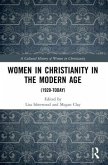First published in 1996, this volume is a sequel to Humour in Society: Resistance and Control which was edited by George E.C. Paton and Chris Powell. Now, seven years later, the culturally central nature of humour seems greater than ever.
This collection of original essays critically assesses the practices of humour in various role relationships in a number of social contexts, for example, in the workplace and between family members. A feature of this new volume is the critical analysis of socio-linguistic practices, including the use of jokes and cartoons, to manage tensions in social relationships at the micro- and macro-sociological levels of human interaction. Wider social and cultural issues area also examined by other contributors concerned with alternative comedy and sitcoms in British and Australian society, for example, which along with humour practices are situated by the editors in their introduction to substantiate the value of studying and researching the sociology of humour.
This collection of original essays critically assesses the practices of humour in various role relationships in a number of social contexts, for example, in the workplace and between family members. A feature of this new volume is the critical analysis of socio-linguistic practices, including the use of jokes and cartoons, to manage tensions in social relationships at the micro- and macro-sociological levels of human interaction. Wider social and cultural issues area also examined by other contributors concerned with alternative comedy and sitcoms in British and Australian society, for example, which along with humour practices are situated by the editors in their introduction to substantiate the value of studying and researching the sociology of humour.








